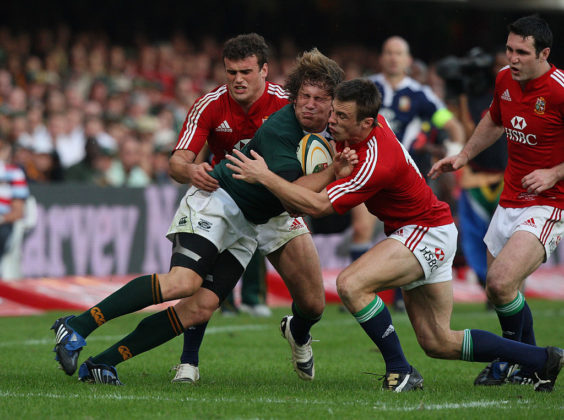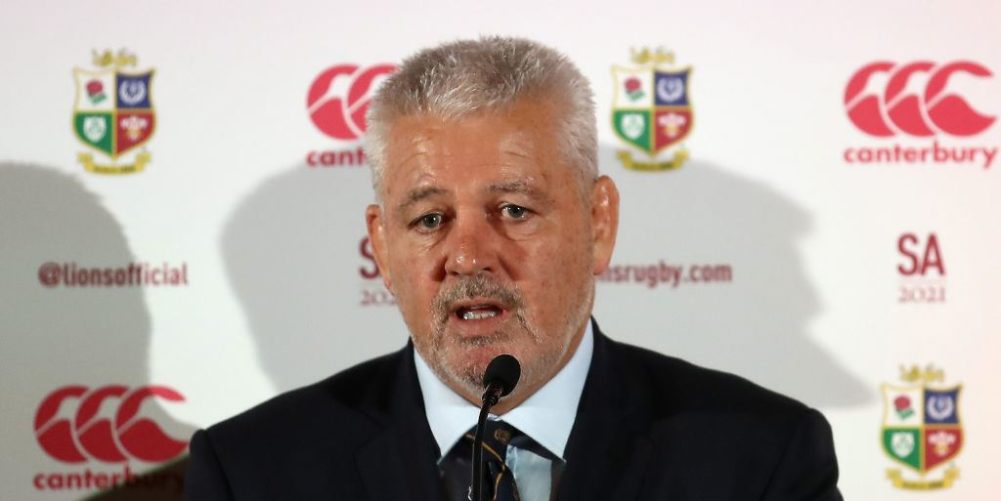IT was always going to be difficult to look beyond Warren Gatland as Lions coach for the 2021 tour to South Africa as long as he wanted the job. His tenure as head coach with one series win over Australia in 2013, followed by a drawn series in New Zealand in 2017, both of them achieved while overcoming serious obstacles in terms of preparation, is awesome.
It was a nice handing-over of the baton from Ian McGeechan to Gatland after the 2009 Lions tour of South Africa – and Warren’s experience as forwards coach on that tour will also be invaluable when he leads the Lions there again two years from now.
Gatland is a good fit for the Lions because I think that the New Zealand club rugby culture he comes from goes very well with the character of the touring side. The Lions are very much a club attitude of ‘we are all in it together’, even though it is a super-charged version of that.
In essence the Lions are based on quite a basic club principle of shared experience, goals and enjoyment like the one we had at Bath, only it’s a very intense one because it is squeezed into a few weeks rather than a few years.
You get that same attitude in the community-led clubs in New Zealand, and Gatland’s involvement in the club game in Waikato as a player, and then provincial rugby against the Lions, and onto coaching in Ireland and at Wasps will only have reinforced it.
The best thing for the Lions is a continuity of coaches, especially a successful head coach like Gatland who understands the challenge so well.
My view is that someone like his fellow Kiwi, Joe Schmidt, is probably too intense for the Lions, despite being a very accomplished and detailed coach. I am not sure that the prescriptive method of coaching would work as well with the Lions as it has for Schmidt in his time at Leinster, and more recently with Ireland.
The Lions demand something a little less detailed and intense. In my view it has to be player driven because on these tours there is so little time to get your act together – and now the tour itinerary has been crammed into five weeks that player input is even more crucial.
Like with a painting, coaches can sketch the outline on Lions tours, but then that they must let the players fill in the colours and take ownership.
Gatland understands that, and it is why any other appointment would have been left-field. It’s very good news that he has got a couple of years to get the logistics for the tour together, and to do a proper recce.
However, whatever Test team Warren wrote down now would bear very little resemblance to the team that plays in the first Test of the 2021 series. Sometimes players can age more quickly than you expect, and there are also serious fluctuations in form to take into account.
This applies not just to the Lions, but to South Africa as well. For instance, they could easily have a different coach by the time the series comes around.

As for the preparation, Gatland has said that English players could be at a disadvantage if the Premiership final cannot be played a week earlier. Hopefully, he can persuade the Premiership to take the commonsense view so that the English and the Celts – who have already moved the PRO14 forward by a week to assist the Lions – can start training together as a Lions squad at the same time.
I am not a scheduling expert, but it seems inexplicable to me why, with two years in which to plan it, the 2020-21 season could not start a week earlier to help the Lions.
The money that is generated by a Lions tour is split equally between the Four Home Unions, and, for instance, in England that money goes from the RFU to fund the club game. So, not to fund the Lions seems fairly unreasonable. After all, Lions tours add to the promotion of your league if your players are in the Lions showcase.
So why would you put your own players at a disadvantage in Lions selection? It makes no sense.

There is already a debate about the Test venues for the 2021 tour, with one rumour doing the round that there will be two Tests at altitude and one at sea level. This is partly because the bigger South African stadiums are at altitude on the high veld, and you cannot ignore the commercial importance of that.
However it is similarly crazy that South Africa would not want to have a Test at sea level in Cape Town, which is one of the world’s greatest tourist destinations. The new Greenpoint Stadium is fantastic and can replace Newlands, which is now past its sell-by date – so why not promote your best known location?
There will no doubt be a great battle over whether two of the Tests are on the coast or at altitude. From my own experience of playing in South Africa on the 1997 tour, altitude affects people differently.
We were lucky to get our first two Tests at sea level in Cape Town and Durban, but it didn’t even register with me – I just enjoyed it. I didn’t notice the altitude in terms of a burning sensation in the lungs when we played on the high veld, but I did feel out of breath and tired more quickly – until your second wind kicked-in. I didn’t think too much about it, otherwise it can start to play on your mind.
You have to suck it up. As players and coaches on a Lions tour you know what’s coming, and you just get on with it. Don’t moan, take it in your stride, and feed off the challenge.
If I’m the Lions I want three Tests at sea level, and if I’m South Africa I want three at altitude. What makes most sense is to have a tour agreement where you alternate with two Tests at sea level, followed next time by two at altitude, and so on.
If there are serious disagreements the Lions can call the tune by refusing to tour, but you have to be grown up and reasonable about it. I am sure that Gatland and others will make it happen because it is a great experience for players and supporters – and because the Lions head coach will want to put his plan to beat the Springboks into practice.























